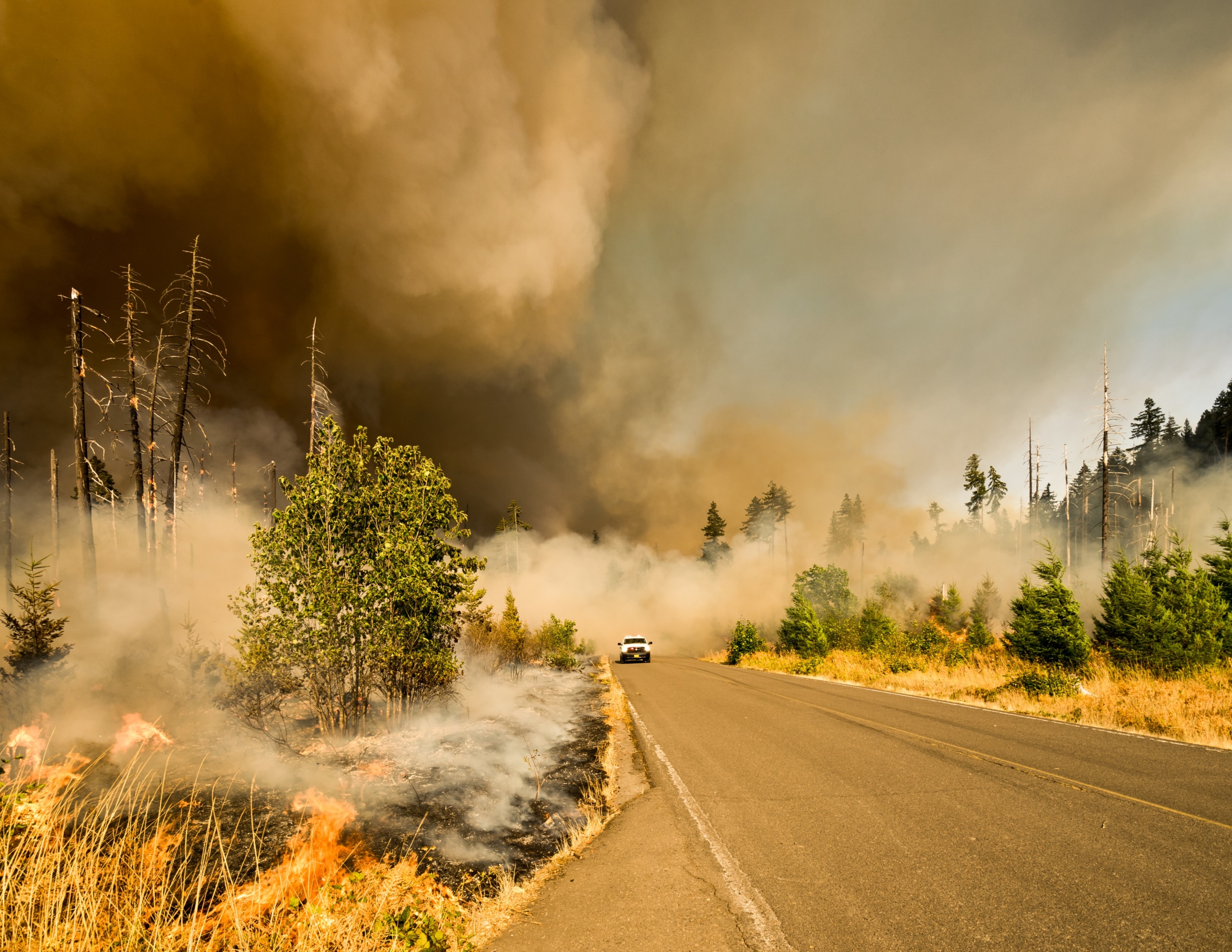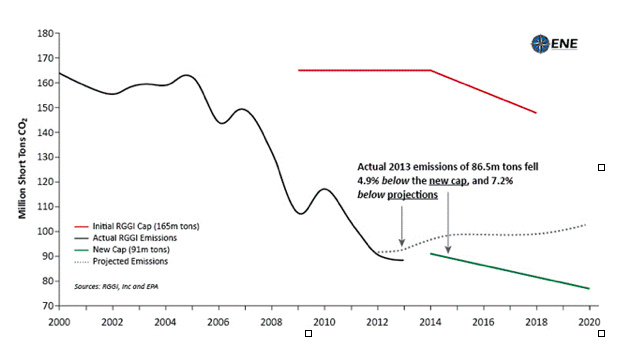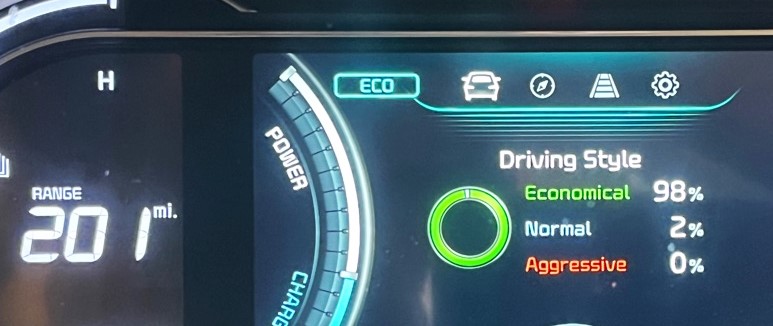
Testimony in Defense of the Regional Greenhouse Gas Initiative
On January 22, 2014, Environment New Hampshire's Madeline Page and Travis Madsen gave oral and written testimony before the New Hampshire House Energy, Science and Technology Committee in support of the Regional Greenhouse Gas Initiative. Full written testimony below:
Downloads
On January 22, 2014, Environment New Hampshire’s Madeline Page and Travis Madsen gave oral and written testimony before the New Hampshire House Energy, Science and Technology Committee in support of the Regional Greenhouse Gas Initiative. Full written testimony below:
TO: House Science, Technology and Energy Committee Members
FROM: Madeline Page and Travis Madsen, Environment New Hampshire
SUBJECT: OPPOSE House Bill 208
DATE: January 22, 2015
Environment New Hampshire Testimony in Support of the Regional Greenhouse Gas Initiative
Oppose House Bill 208, Which Would Repeal RGGI
From accelerating sea-level rise, to stronger hurricanes, to more devastating downpours, global warming is already having an impact on New Hampshire. Inaction poses grave risks to citizens and communities across the Granite State.
Despite these risks, Representatives Barry, Moore and Notter have proposed House Bill 208, which would repeal the Regional Greenhouse Gas Initiative (RGGI), an important program designed to clean up power plant emissions of climate-altering pollution across the Northeast.
RGGI is a critical ingredient in New Hampshire’s response to global warming, and an investment in the health and safety of both current citizens and future generations across New Hampshire. It is also an important tool that New Hampshire can use in designing a compliance strategy for the Clean Power Plan, an upcoming federal rule to clean up global warming from power plants that EPA will finalize this summer. Finally, RGGI is an important source of revenue for consumer benefit – we have generated nearly $73 million to date for investments in energy efficiency and ratepayer rebates.
Repealing RGGI would be a mistake for New Hampshire, both in terms of our environment and our economy. Accordingly, we urge the New Hampshire legislature to reject House Bill 208.
Global Warming Risks New Hampshire’s Future
The scientific consensus on the threat posed by climate change is clear. The American Association for the Advancement of Science (AAAS) puts it this way:
- “Climate scientists agree: climate change is happening here and now.”
- “We are at risk of pushing our climate system toward abrupt, unpredictable, and potentially irreversible changes with highly damaging impacts.”
- “The sooner we act, the lower the risk and cost. And there is much we can do.”
Global warming is primarily caused by human combustion of fossil fuels, which produces carbon dioxide pollution. When carbon dioxide and other heat-trapping emissions are released into the air, they act like a blanket, trapping heat in our atmosphere and warming the planet. One blanket is good… but we’re heading for a 5-blanket world.
The third U.S. National Climate Assessment makes it clear that global warming is already having an impact on New Hampshire:
- The average temperature in our state is about 2° F warmer now than it was in the late 19th century. Globally, 2014 was the warmest year on record.
- Melting ice and warming oceans are causing sea levels to rise. On average, sea levels are now about a foot higher than they were 100 years ago. As a result, the risk of coastal flooding on the scale caused by Hurricane Sandy has doubled over the last 60 years.
- Warmer air holds more water vapor, which means heavier storms. Our region has experienced a greater recent increase in extreme precipitation than any other region in the United States. Between 1948 and 2011, the frequency of intense rain or snowstorms more than doubled in New Hampshire – more than anywhere else in the country. These heavy storms increase the risk of flooding and infrastructure damage all across the state.
If we do not alter course, average temperatures in New Hampshire could increase by as much as 10° F by the end of the century, and impacts will become more severe. For example:
- Heat waves will become much more common, increasing the risk of heat-related illness and damaging our agriculture. The number of days above 90 degrees could more than double by 2050, with parts of the state experiencing more than a dozen such days in a typical year. Increased heat will shorten the ski season and damage the fall foliage season, reducing tourism income in the state.
- Scientists anticipate that if we do not alter course, sea levels could rise by as much as 6 feet by 2100. Sea level rise on that scale would make Sandy-scale coastal flooding an annual or bi-annual event, dramatically reshape the Eastern Seaboard, and displace hundreds of thousands of people from their communities.
How bad the problem gets depends on how quickly and how deeply humanity can reduce emissions of global warming pollution.
Major Reductions in Global Warming Pollution Are Urgently Necessary
Science is clear about what we need to do to avoid the worst consequences of global warming: stabilize worldwide emissions of the pollutants that cause global warming by the end of the decade and reduce them by more than half by mid-century.
For the United States and other developed countries, emission reductions must occur more quickly and more steeply, with reductions of 25 to 40 percent below 1990 levels by 2020 and 80 to 95 percent by 2050.
New Hampshire Helped to Create the Regional Greenhouse Gas Initiative – A Groundbreaking Program Designed to Clean Up Power Plants
New Hampshire’s leaders recognized that cleaning up power plants would be an important part of meeting its climate targets. That’s why the state helped to create the Regional Greenhouse Gas Initiative (RGGI). The state worked with nine other northeast states from Maryland to Maine – across geographic and partisan divides—to craft this groundbreaking program and accelerate the shift to clean energy.
The program originated in 2003, when New York Governor George Pataki, a Republican, circulated a letter to the governors of 10 other northeastern states calling for the creation of a regional agreement to reduce global warming pollution from their states. New Hampshire joined eight other states—Connecticut, Delaware, Maine, Massachusetts, New Jersey, New York, Rhode Island, and Vermont—to develop a cap-and-trade program for power plants.
By joining together, northeastern governors knew that their states could achieve greater results in the drive toward clean energy, and do so at lower cost, than they ever could ever achieve separately.
In addition to ensuring that power plant carbon emissions decline over time, RGGI generates revenue that states can use to benefit citizens.
RGGI Is a Proven Success
RGGI has significantly helped reduce carbon pollution, while at the same time supporting economic development, creating new jobs and saving consumers money on energy in the nine states that currently participate.
To date, the program has generated more than $1 billion in auction revenues that states have largely invested in clean energy solutions – providing significant benefits. According to a recent report by ENE (Environment Northeast) and by RGGI Inc., since it launched in 2009, RGGI has already helped:
- Reduce carbon pollution by almost 30 percent;
- Cut electricity prices by 8 percent;
- Create more than 23,000 job-years of work;
- Lock in more than $1.8 billion in long-term savings on energy bills; and
- Add more than $2.4 billion in economic activity to the region.
Incredibly, pollution levels in the nine-state RGGI region is now down almost 50 percent below the original target set in 2005. (See Figure 1.) To ensure that the program remains effective, RGGI state governors agreed in February 2013 to make deeper cuts in power plant carbon emissions (represented by the green line in Figure 1). Through 2020, the new limit will prevent as much pollution as would be emitted by 16 million cars. At the same time, it will generate more than $8 billion in economic benefits, including energy bill savings, and more than 120,000 job-years of employment across the region.
Figure 1: Pollution is down almost 50 percent from the original RGGI target.

New Hampshire has generated more than $73 million through RGGI. New Hampshire has invested a portion of RGGI revenues into energy efficiency – which reduces carbon emissions and makes the electricity system less expensive for everyone. The legislature mandated in 2012 that another portion of RGGI revenues be returned directly to ratepayers through rebates.
Repealing RGGI Would Harm New Hampshire
The proposed House Bill 208 would repeal the Regional Greenhouse Gas Initiative in New Hampshire. This would have three major consequences.
- First, New Hampshire would give up the environmental benefits of reduced power plant air pollution.
- Second, the state would give up the revenues associated with auctioning carbon allowances. According to analysis by Regional Economic Models, Inc, over the next 10 years, RGGI will bring states an additional $4 billion in revenue, which will generate $8.7 billion in economic growth, and 132,000 job years of employment. In New Hampshire, the Public Utilities Commission and the Department of Environmental Services estimate that repeal would cost state and local governments $20-30 million annually in coming years. Cutting funding for energy efficiency programs in particular would be a missed opportunity. Every RGGI dollar that states put into energy efficiency programs delivers more than $2 dollars in benefits, in addition to reducing carbon pollution.
- Third, the state would give up a tool that states have promoted as an ideal compliance mechanism for the federal Clean Power Plan, a rule that EPA will finalize this summer to limit carbon pollution from power plants nationwide.
Repealing RGGI Will Make it More Difficult for New Hampshire to Comply with the Clean Power Plan
On June 2, 2014, the federal Environmental Protection Agency proposed the Clean Power Plan – a new rule to limit carbon pollution from power plants nationwide. New Hampshire has worked with other RGGI states to promote RGGI as an ideal compliance mechanism. The infrastructure of the program is already developed, New Hampshire has a history of participation and its utilities are familiar with the program, and it generates revenue that the state can use to accelerate its transition to clean energy and make the goals of the Clean Power Plan easier to achieve.
Without RGGI, the state will be left without a critical tool that it is planning to rely on to ensure that New Hampshire does its part to reduce carbon pollution as required by the Clean Air Act.
Notes
See download for citations.
Topics
Find Out More


Carbon dioxide removal: The right thing at the wrong time?

Fact file: Computing is using more energy than ever.


